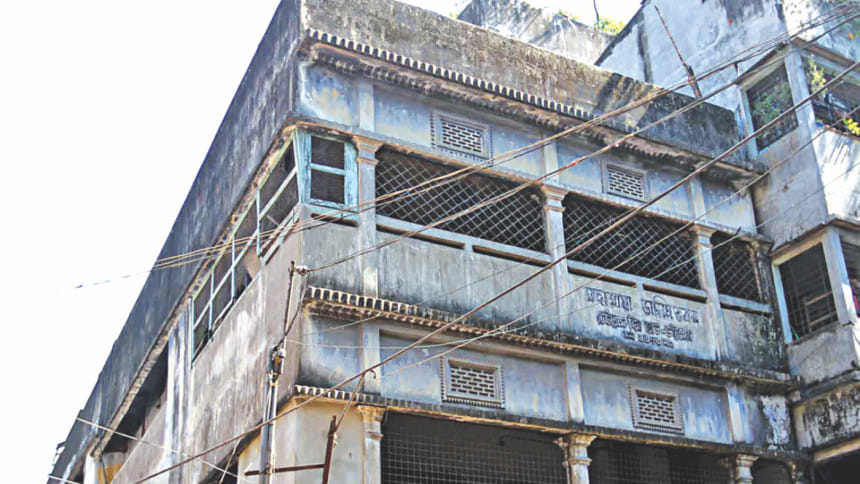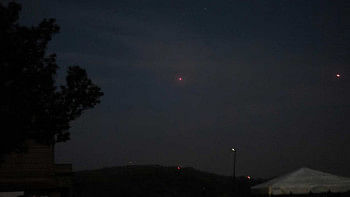'Please pray for us'

"Apa, please pray for us so that we can be successful."
These were the last few words Jasim Uddin spoke to his cousin Hasina Khatun before leaving her home on the Eid-ul-Fitr evening of 1971. The young freedom fighter from Sandwip of Chittagong could not make it to see the cherished freedom for which he fought until his last breath.
The day after the Eid, 15-year-old Jasim was abducted by the notorious Al-Badr members from an unknown location in Chittagong. They took him to Mahamaya Dalim Hotel, which was turned into the main Al-Badr camp for torture, and inflicted brutal torture on him and other freedom fighters and freedom loving people.
Jasim was tortured to death there and his body was dumped in the Karnaphuli river. His body was never found.
And the man who led the killing was Mir Quasem Ali, the chief of the notorious Al-Badr force in Chittagong.
But justice caught up with him in November, 2014, when a special tribunal sentenced him to death for Jasim's killing. And yesterday, a Supreme Court bench unanimously upheld his death penalty, paving the way for his execution.
"I always had the thought I would not get justice for such a grievous crime as killing a youth. It cannot be ... I'm very satisfied today ... I got justice finally," said Hasina while talking to The Daily Star over the phone.
"He filled the void of a brother as I don't have any. And I still feel his absence," said Hasina, who testified in the war crimes case against Quasem.
She demanded quick execution of the verdict.
Youngest of 10 children of school teacher Syed Ahmed, Jasim was a higher secondary school examinee at the Chittagong College when he joined the Liberation War. He used to visit Hasina at Bepari Para in Chittagong regularly.
The young freedom fighter asked his cousin to cook scented rice and she complied. Jasim had the rice and left urging her to wish him luck so that they could be successful in freeing the nation from the clutches of the Pakistan army and their local collaborators.
"Jasim, a brave youth freedom fighter was murdered in unlawful captivity at the Al-Badr camp where he was brought on capture. He was non-combatant at the time of his forcible capture," observed the International Crimes Tribunal-2 in its verdict.
Lawyer Shafiul Alam, who was among the captives at Dalim Hotel, in his book “Sei Se Somoy Anonde Bedonay” wrote that on November 28, 1971, three to four men flung open the door of a room carrying a boy on their shoulders.
They threw him on the floor.
"As the door was closed, I removed his blindfold, untied him, and took him in my lap. When we lifted his face to the sunlight coming through the ventilator, we were shocked.
"It was teenage freedom fighter Jasim! His head almost slipped off my lap. We realised that Jasim was no more,” said Shafiul in his book published in 2006.
The book was used as evidence in the case.
Prosecution witness Sanaullah Chowdhury, who was abducted on November 27, 1971 and was held at the Dalim Hotel for 12 days, said a boy, who had endured severe torture, was brought to the room on November 28, 1971.
"Pointing to that boy, someone told the Al-Badr men 'he is not dead yet, throw him in so that the detainees understand the consequence of not telling the truth'. Then they [the Al-Badr men] left the boy in the room," he said.
"Advocate Shafiul Alam told me that he [who gave the orders] was Mir Quasem Ali, commander of Badr [Al-Badr] force," he said.
The special tribunal in its judgment said, "Killing Jasim, a youth freedom fighter in captivity at the AB [Al-Badr] camp was the ending phase of the organised and system cruelties that, as revealed, were practiced as routine activities at the torture and detention camp directing the detained civilians brought there on capture."
"The pained relatives could not have trace even of their dear ones. What a brutality! What a grisly felony attacking the humanity!" it said.
Even Hasina did not get to know what had happened to her cousin until independence.
She came to know from Shafiul and Saifuddin Khan, another detainee, about the fate of Jasim.
On the trying of war crimes suspects four decades after the death of her cousin, she said it was “a second war”.
"I wish for success in this war," she said, thanking the prosecution and investigators of the war crimes cases.

 For all latest news, follow The Daily Star's Google News channel.
For all latest news, follow The Daily Star's Google News channel. 



Comments